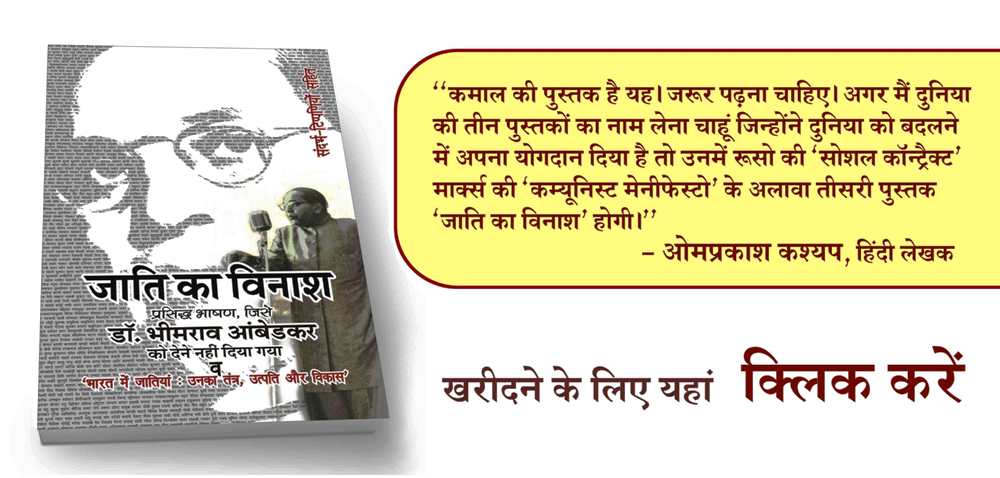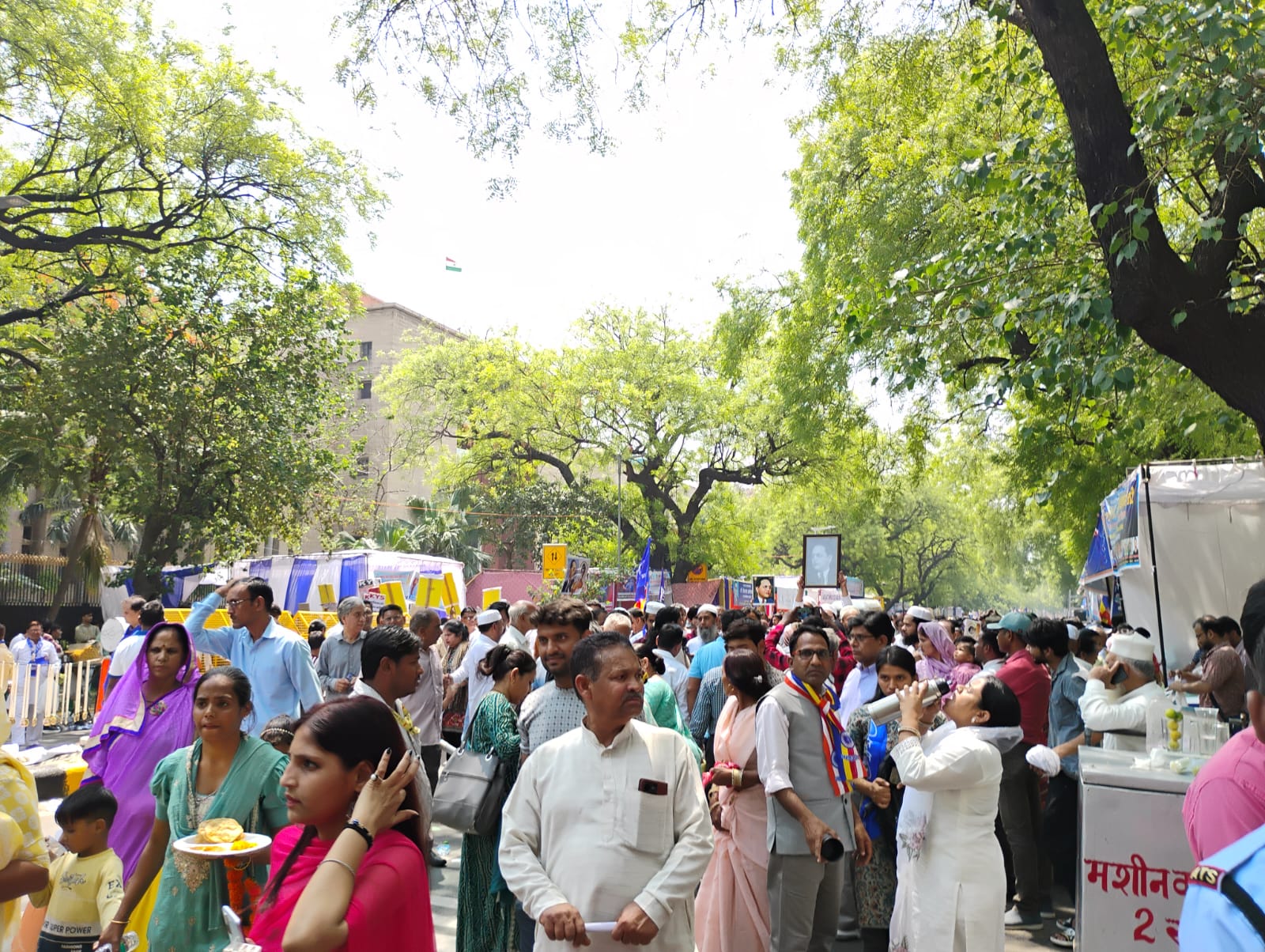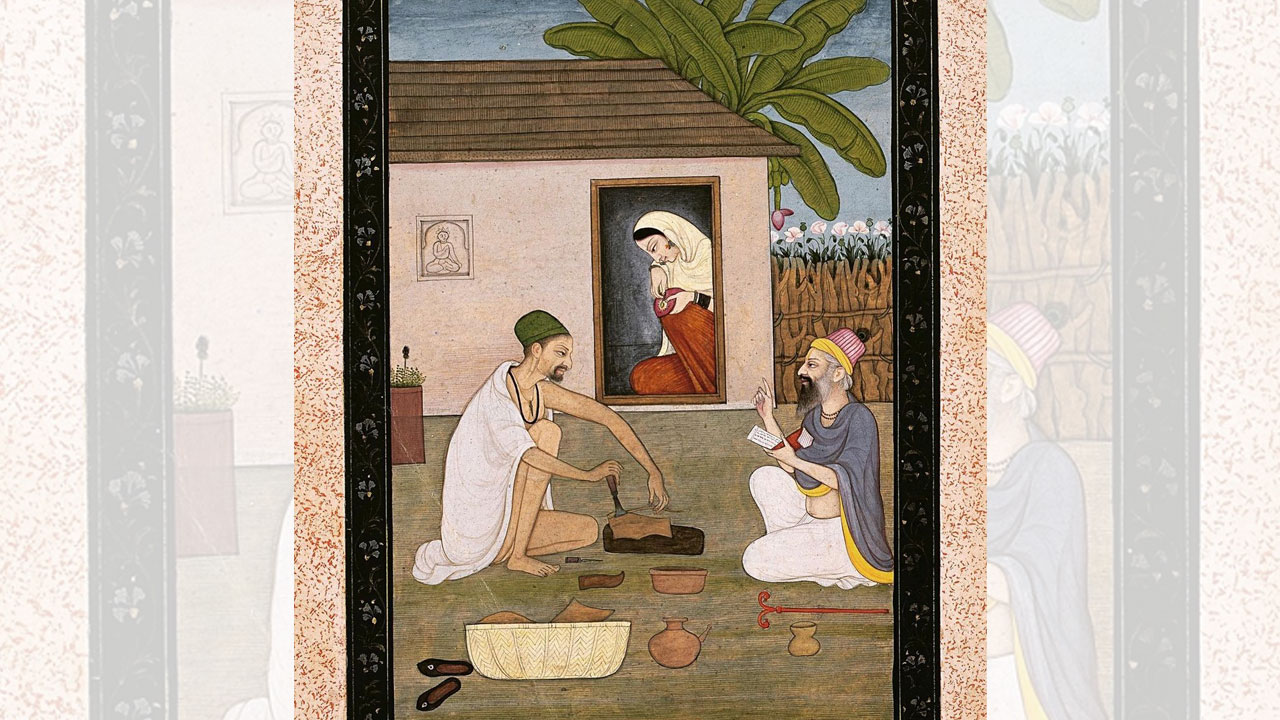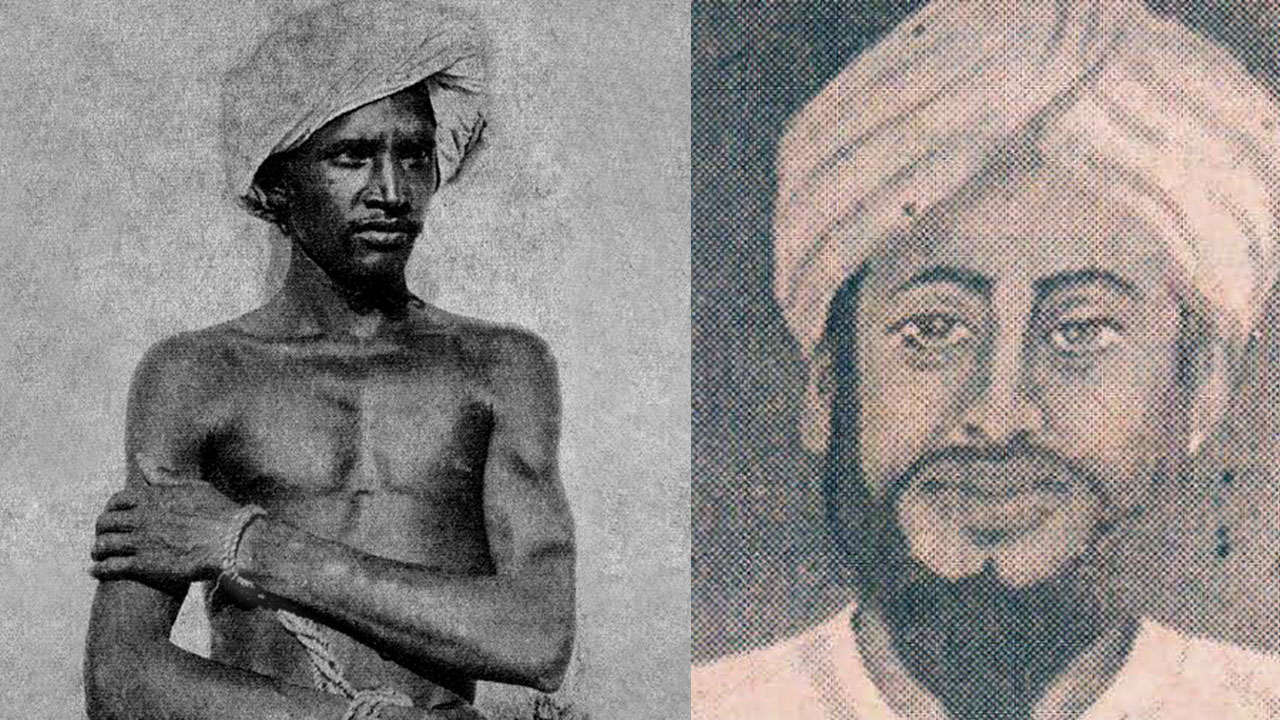RAMSWAROOP VERMA (22 August 1923 – 19 August 1998)
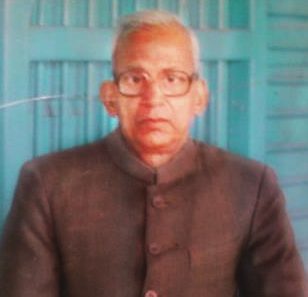
I met Ramswaroop Verma for the first time in 1974, although I had known him for three years by then. I remember having come across a booklet, sometime in 1971. It was an election manifesto released by Hindustani Shoshit Samaj Dal. The efforts of Jagdev Jagdev Prasad, a combative leader from Bihar, had resulted in the political party Shoshit Dal. It became Hindustani Shoshit Dal and, after some time, was again renamed Shoshit Samaj Dal. The manifesto failed to impress me. It emphasized an agricultural revolution. The foundation of agricultural reform was laid at the government level during the premiership of Lal Bahadur Shastri. Various political parties had been demanding it for a while. It was the year 1971. I was studying for an intermediate degree, but I was not a political novice. I was keen to learn. Having read Marx and Engels’ Communist Manifesto I was certain that the best way to know the customs and policies of any political party was to study its election manifesto. I read the manifesto from that point of view. I was told that Ramswaroop Verma, who was a well-known leader in Uttar Pradesh, had written the booklet.
As I mentioned earlier, the manifesto didn’t impress me. I recall that it contained statistics regarding India’s forest cover and said that the party wanted to clear the forest with modern machines. The manifesto said that such lands, after conversion into agricultural land, should be distributed among those who knew farming; this would not only make the country self-sufficient in food grains, but also the resultant prosperity in this sector, would also lead to a dramatic jump in the country’s GDP.
Those days, there wasn’t much of an emphasis on environment. But as a student of Botany I had some idea about the importance of forests. I had begun to understand Marxist literature and though somewhat unsure, I was willing to believe that India could benefit only when the burden of the population on the agricultural sector was reduced. What we knew at the time was that the British rule had turned India into a market of the British products, especially textiles, ruining Indian’s own textile industry. The weavers employed in small towns were rendered jobless. They went to the villages and became a burden on agriculture. Confronted with this situation, it made sense to promote industrialization. This manifesto was instead advocating destruction of forest and development of agriculture. Our fundamental difference of opinion lay here.
BUY FORWARD PRESS BOOKS FROM THE COMFORT OF YOUR HOMES
Three years later, in September 1974, Jagdev Prasad was assassinated. The JP movement was at the peak. This brutal assassination had left the entire Bihar, particularly the central region, agitated. I met Ramswaroop Verma sometime during this period. On his visits to Patna he would stay at India Hotel, near Gandhi Maidan. At times, he would stay at Rambujhavan Babu’s home. Verma ji’s focus was not politics but on promoting Arjak Sangh, a socio-cultural organization set up by him in 1966. Arjak Sangh aimed at the removal of the dwijvaadi (twice-born) social system and the establishment of an equitable society. Prof Rambujhavan Singh, who taught in Patna University, was the national president of Arjak Sangh. Rambujhavan Babu was a relative of mine and my Patna postal address was his home. I met Verma ji there for the first time. He had a charming personality. He liked dressing up well. He was fair and wore spectacles with a golden frame. He had the tastes of a rich man. My first impression was that he came from a prosperous farmer-zamindar family and had taken up active politics as a hobby. To me, Verma ji and Jagdev babu’s personalites were a study in contrast. The first meeting was confined to introductions and glances at each other. Neither he took notice of me nor did I of him. Frankly speaking, I didn’t find him impressive.
In the subsequent meetings, conversations and even debates followed. Around that time Bahujan Kalyan Prakashan, Lucknow, had published my book, Manusmriti: Ek Pratikriya. He had read that book and also had few words of appreciation for me. He had been bringing out a tabloid named Arjak. He invited me to contribute in it. By then he had realized that my roots were in Marxism and Buddhism. He would not let anyone know which ideology he believed in. He never ever quoted anybody. It was difficult to ascertain whether he was influenced by anybody. Admittedly, he possessed exceptional logic and it was difficult to defeat him in debate. He emphasized scientific temper and the use of knowledge obtained from modern science and technology. He attacked religious superstitions and dogmas. He was against any form of hegemony. His ideology was based on democracy, equality and progressive ideas.
He would always remain alert and logical during discussions. In between he, like Rajneesh, would narrate anecdotes. Once when we were discussing inter-caste marriage he said that he couldn’t approve such a despicable thing. I was shocked as to why he would say that. He explained that human beings belong to a single species. A man can’t marry a cow, bull or a goat. The moment you utter “inter-caste” you have implicitly accepted casteism. I had not expected such a fine logic. I learnt to remain alert during discussions with him.
He regarded the feeling of anger and revenge as inhuman. Humanity has dignity and it needs constant refinement. He had a story regarding anger, which you may like to hear. There was a family man. He had some guests. As he ran short of plates he borrowed some from his neighbour. The guests were fed. After seeing off the guests he returned the plates to his neighbour. His neighbour learnt that non-vegetarian food was served in his plates. He was a pure vegetarian. He was mad with rage for being deceived. He decided to take revenge in a manner that his neighbour would remember for generations. After a few days he also borrowed a plate from his neighbour. “There are some impure people who eat flesh but I will eat human excreta, which nobody eats.” He fulfilled his vow and returned the plate. A smiling Verma ji concluded with the moral of the story: This is how anger harms man.
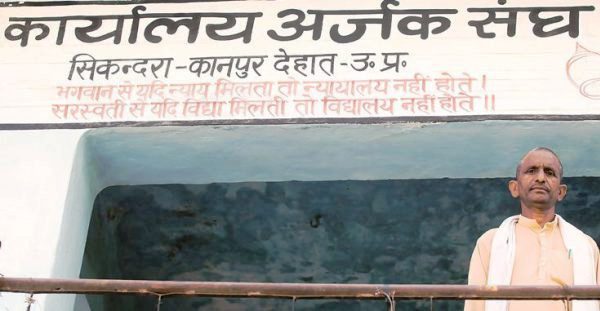
I felt that he was more interested in social rather than political transformation. He had established Arjak Sangh with that objective. Forces of the subconscious do come into play in society once in a while. Hindi belt had not witnessed a major social movement in the modern era. Certainly, no Phule or Ambedkar was born here but even the influence of Arya Samaj didn’t extend beyond Saharanpur. The majority of the toiling castes and farmers and weavers in the Hindi belt were becoming increasingly restive. The combine of Ramswaroop Verma and Jagdev Prasad gave a political voice to this restiveness. Verma ji believed that it was not possible to bring about political change without transforming society. This was Jotirao Phule’s line of thinking. This approach was apparent in the 20th century in the moderate principles of Gokhale and Gandhi, and the same approach with some modifications emerged in the anti-brahmanical political stance of Ambedkar and Periyar. This is the ideology of Ramswaroop Verma and Jagdev Prasad at the subconscious level. Kanshiram refined this ideology in Dalit politics. But the politics of backward classes still remains the victim of Lohiyaite constructs. Unless dismantled, the political thought of backward classes will continue to weaken.
You may recall that the socialist elements in the politics of Hindi belt were far removed from the ground reality. All of them were armchair socialists. One among them was Ram Manohar Lohia, whose United Socialist Party did coin the slogan ‘‘Pichhda Pavai Sao mein Sath’ (60 per cent reservation for the Backward classes) in accordance with its principle of special opportunity. But it was akin to seeking a favor from the dwij (twice-born) forces; there was no feeling of self-respect in it. The Verma-Prasad duo attempted to transform it into a movement for self-respect of the exploited classes of the Bahujans. This was a big deal around 1970 because Phule and Ambedkar rarely figured in the discourse here.
Ramswaroop Verma’s circle was highly enlightened. Besides Jagdev Prasad it included Maharaj Singh Bharti, Motiram Shastri and many others, whose works need to be studied individually as well as collectively. Maharaj Singh Bharti and Motiram Shastri were great souls. I wonder how much they would have pondered on the current situation had they been alive today. Once, all three visited my village. It was the monsoon season and the downpour was so heavy that they couldn’t leave the village for two days. It was an unbelievable experience! We had non-stop rain and debates to keep us company. Three great souls had converged at one place. The matters we discussed were numerous. In retrospect, I think that these discussions, had they been recorded, could have been very useful in the current situation.
My last meeting with Verma ji was at Sasaram railway station, a few years before his demise. It was a chance meeting. The country was past the phase of Mandal-Kamandal (disturbance arising out of the Mandal commission report and the Babri Masjid episode). He had come to Sasaram to address an Arjak Sangh meeting. His train was delayed. He sat on a concrete bench as he waited for his train, all by himself. Someone, who had come to see him off, had left to attend to an important matter or something that had come up. Since it was not proper to detain him, Verma ji had excused him. This showed his sensitivity. At first, I was surprised to see him all alone in an unknown place but felt normal once our conversation began. We were meeting after about 20 years. Though emaciated, he was alert as ever. He said, “You have become a famous writer. I saw your picture in the newspaper.” He grinned sardonically. Then he began talking about Hindi literature. He offered a critique and then talked about the role of Kabir and Raidas in social transformation. He prodded me to serve the oppressed humanity. He looked very cheerful. Talking about his journey, he said. “I faced lot of inconvenience, but having chatted with you, I feel so much better. Do come over to meet me.” And, he became emotional because, I guessed, he knew I was unlikely to visit him. His train had arrived. His parting words were: “You people have become indulgent, which is not desirable. I have expectations from you, Mani.” The train had started moving.
If memory serves me right, he breathed his last on 19 August 1998. The next day, on 20 August, I was at a meeting. Rambujhavan Babu told us that he was no more. The meeting turned into a condolence meeting.
Translation: Parmanand Baiga; copy-editing: Anil
Forward Press also publishes books on Bahujan issues. Forward Press Books sheds light on the widespread problems as well as the finer aspects of Bahujan (Dalit, OBC, Adivasi, Nomadic, Pasmanda) society, culture, literature and politics. Contact us for a list of FP Books’ titles and to order. Mobile: +917827427311, Email: info@forwardmagazine.in)
The titles from Forward Press Books are also available on Kindle and these e-books cost less than their print versions. Browse and buy:
The Case for Bahujan Literature
Dalit Panthers: An Authoritative History

